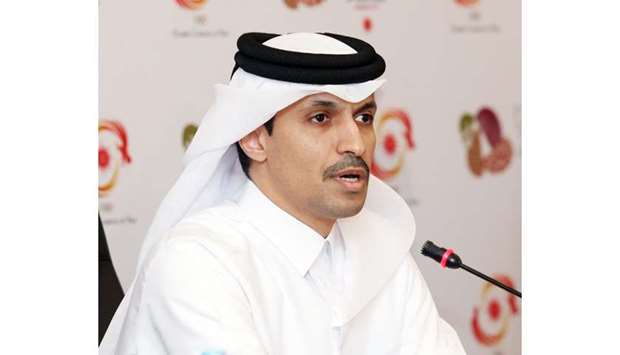The 2006 Doha Asian Games laid a solid foundation for Qatar to build a legacy and that process will continue if the country wins the bid to host the 2030 Asian Games, said Jassim Rashid al-Buenain, the Qatar Olympic Committee’s Secretary-General and CEO of the Doha 2030 Bid Committee.
Doha is competing with Riyadh to host the continental games in little over 10 years’ time. The Olympic Council of Asia’s (OCA) Evaluation Committee spent the last three days in Doha as they assessed the city’s infrastructure and capability to host the 2030 Asian Games. And they have been impressed by what they have seen, said Andrey Kryukov, the head of the OCA’s Evaluation Committee. Kryukov will now submit a report to OCA, which will decide the host at its General Assembly in Oman, Muscat on December 16.
Al-Buenain was confident that Doha would win the bid and also emphasised Qatar’s expertise in hosting major international events. “Our bid is more than just a Qatari priority, it is to show how the Doha 2030 could shape the immediate and long term priorities for Qatar and Asian countries,” he said at a press conference at the Sheraton Doha hotel.
“Actually, the 2030 bid is a gateway to certainty of excellence. We have the people, we have the expertise, we have the experiences and most importantly we have the passion. When it comes to the venues, they are already there. They have been tested in the Asian and international competitions. Athletes can be assured of very top conditions to train and compete.” Doha 2030 CEO added, Al-Buenain spoke elaborately about the positive impact of 2006 Asian Games and said Doha 2030 will allow the country to focus on building a legacy. “We succeeded in transferring the legacy of Asian Games in 2006 to many sectors in Doha. I believe that we are aiming to serve the entire continent by hosting the 2030 Asian Games. We are looking forward to putting all our effort to deliver amazing games,” he explained.
“Doha 2030 is already a gateway to a legacy now, not in 10 years. That means, if we are honoured of hosting of the Asian Games, the programme will start in 2021 and we will call it 21 Project Legacy. Altogether, it means that Doha 2030 is a gateway to a bright future for sports in Asia,” the official added.
Qatar’s track record of hosting major championships is also a key advantage, Al-Buenain felt. “Qatar has the best experience in hosting major international sports events, single and multi-sport competitions. Therefore, when it comes to venues they are ready, infrastructure is there and more importantly we have the required know-how and the people who can manage how to organise a multi-sport event.
“With no infrastructure investment required and no new venues needed to be built, that could allow us to focus to serve the Asian NOCs in order to host amazing Games in the future,” he said.
Sheikha Asma al-Thani, Director of Marketing and Communication at Doha 2030, said Qatar has submitted a ‘strong bid’ and was hopeful of winning the right to host the Asian Games. “Doha has a very strong bid for delivery of the games. We have focussed on Doha as a gateway to an amazing Games. We will offer all our expertise to make sure to give very good hospitality. We hope that we can win the bid and host the Asian Games again,” she said.
Sheikha Asma said the 2030 legacy programme will focus on the progress of young athletes. “After the success of the 2006 Doha Asian Games, Qatar invested a lot in its infrastructure, athletes and students. Since almost 90 percent of our venues are complete, we won’t have to invest much in new ones.
“Instead, we’ll channel it to develop Asia’s youth athletes so that they can be at their best in 2030 to showcase their talent for their country and continent. Our legacy programme has several aspects to it. Should we win the 2030 Asian Games, we’ll announce several legacy programmes and projects in the coming days. We’re confident of our initiatives,” she said.

..

